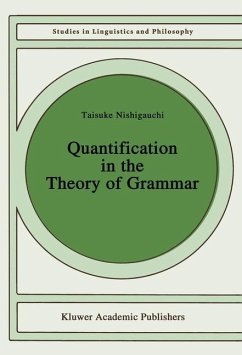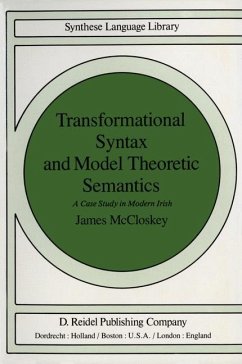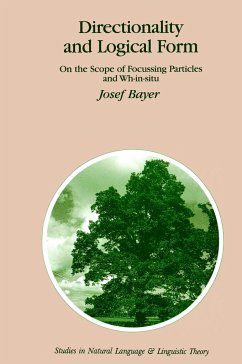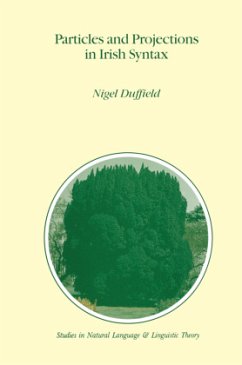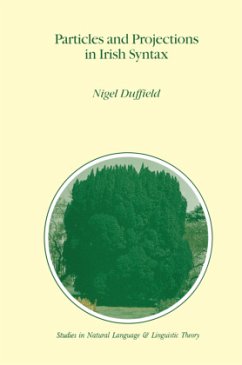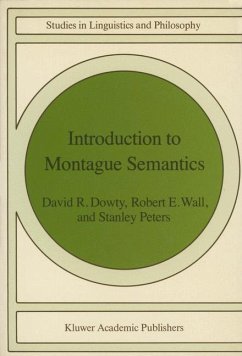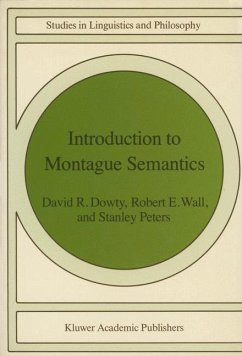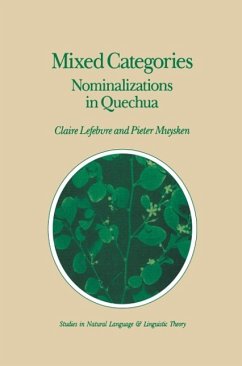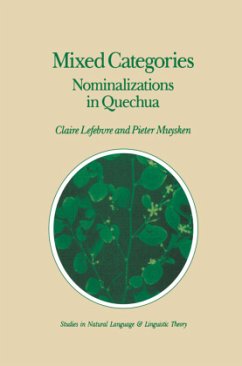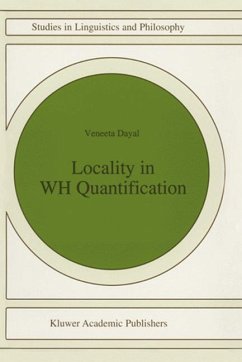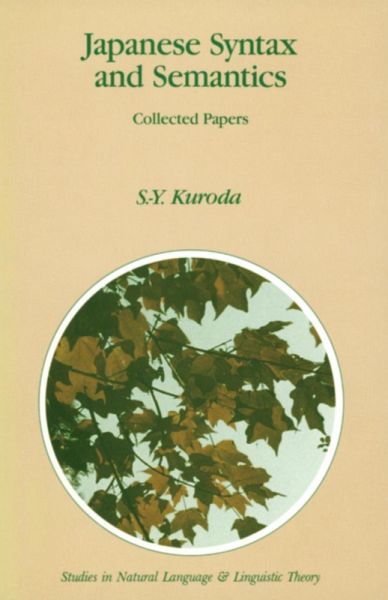
Japanese Syntax and Semantics
Collected Papers

PAYBACK Punkte
107 °P sammeln!
1. Two main themes connect the papers on Japanese syntax collected in this volume: movements of noun phrases and case marking, although each in turn relates to other issues in syntax and semantics. These two themes can be traced back to my 1965 MIT dissertation. The problem of the so-called topic marker wa is a perennial problem in Japanese linguistics. I devoted Chapter 2 of my dissertation to the problem of wa. My primary concern there was transformational genera tive syntax. I was interested in the light that Chomsky'S new theory could shed on the understanding of Japanese sentence structur...
1. Two main themes connect the papers on Japanese syntax collected in this volume: movements of noun phrases and case marking, although each in turn relates to other issues in syntax and semantics. These two themes can be traced back to my 1965 MIT dissertation. The problem of the so-called topic marker wa is a perennial problem in Japanese linguistics. I devoted Chapter 2 of my dissertation to the problem of wa. My primary concern there was transformational genera tive syntax. I was interested in the light that Chomsky'S new theory could shed on the understanding of Japanese sentence structure. I generalized the problem of deriving wa-phrases to the problem of deriving phrases accompanied by the quantifier-like particles mo, demo, sae as well as wa. These particles, mo, demo and sae may roughly be equated with a/so, or something like it and even, respectively, and are grouped together with wa under the name of huku-zyosi as a subcategory of particles in Kokugogaku, Japanese scholarship on Japanese grammar. This taxonomy itself is a straightforward consequence of distributional analysis, and does not require the mechanisms of transformational grammar. My transformational analysis of wa, and by extension, that of the other huku zyosi, consisted in formally relating the function of the post-nominal use of wa to that of the post-predicative use by means of what I called an attachment transformation.



